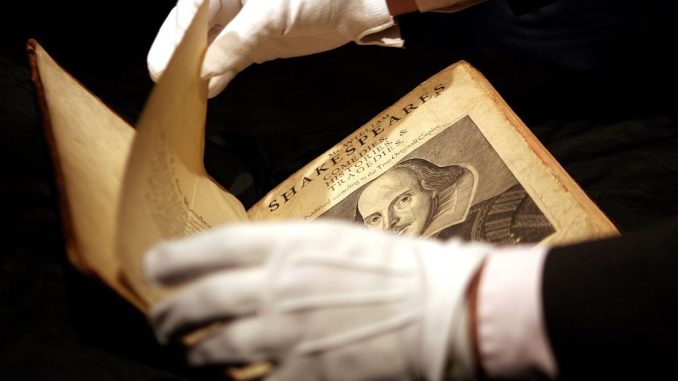
Readers like AI Shakespeare better than the real one
Readers are unable to determine whether a poem was written by a human or by artificial intelligence (AI). On average, they find poems written by AI even more beautiful, inspiring, rich in images and more meaningful than poetry written by a human. This is evident from a new scientific study, published in Scientific Reports.
A panel of 1,634 participants was presented with ten poems written either by a human or by ChatGPT 3.5. These were human poets who are generally regarded as among the greatest in literary history, such as William Shakespeare, Lord Byron, Walt Whitman and Emily Dickinson.
The participants usually thought of the AI poems as having been written by a human. The five poems they thought were not written by a human were all written by a real poet. The researchers believe that the subjects preferred the AI poems because they were written in a simpler and more accessible way.
No AI after all
This poem by T.S. Eliot was most often attributed to AI:
The readers of the Boston Evening Transcript Sway in the wind like a field of ripe corn.
When evening quicklyens faintly in the street,Waking the appetites of life in someAnd to others bringing the Boston Evening Transcript,I mount the steps and ring the bell, turningWearily, as one would turn to nod good-bye to Rochefoucauld,If the street were time and he at the end of the street,And I say, “Cousin Harriet, here is the Boston Evening Transcript.”
However, the test subjects’ preferences changed as soon as they were told that the poems were not written by humans, a second experiment showed. In it, 696 people had to judge the poems on qualities such as beauty, emotion, rhythm and originality.
Those who thought the poems were written by AI gave the poems a lower rating – whether they were actually written by AI or not. The group that did not know who wrote the poems actually rated the AI poems higher.
“A well-conducted study,” says American cognitive psychologist Keith Holyoak, who was not involved in the research. He has long been concerned with the question of whether AI will ever be able to create authentic poetry, including in his book The Spider’s Thread.
Not a human after all
This AI poem, supposedly by Allen Ginsberg, was most often attributed to a real poet:
In the stillness of the night I hear the beat of the city’s heart The rhythm of the streets, the pulse of lifeA symphony of chaos, a work of art
I see the faces in the crowd Each one a story yet untold Their hopes and dreams, fears and doubtsA mystery waiting to unfold
The neon lights flicker and glowLike fireflies in the urban sprawlA modern-day carnival, a wild showA place where anything can befall
In this concrete jungle, I find my voice Amidst the hustle and the noiseA rebel yell, a cry for change call for freedom, unchained.
Holyoak sees no evidence in this new research that AI is now a real poet. “The model is only able to write a poem in Walt Whitman’s style because it has been trained on the complete works of Walt Whitman,” he says. “If you were to train the model without those poems, the result would probably be terrible.”
Greatness or plagiarism?
Perhaps more importantly, the model shows no creativity. “If a person were to produce such imitations of Whitman, you could almost speak of plagiarism,” says Holyoak. “So we can’t compare this to human greatness. We can compare this to human plagiarism.”
You could therefore only speak of real creativity if AI wrote very good poems in the style of a new poet, the poems of which were not included in the training data.
In addition, the question remains whether people will be able to enjoy an AI poem. In the study, the appreciation for a poem decreased as soon as the researchers told them that it had been created by AI. “Readers also appreciate a poem because it is connected to the writer’s inner experience,” says Holyoak.
Preference for average
All in all, the research seems to say at least as much about readers as it does about AI skills. The subjects were not poetry experts, which could explain their preference for simple poems.
In addition, people often prefer the average. For example, if you create a photo of an average face from hundreds of faces, most people will find it a very attractive face.
Holyoak does think that poets could start using AI assistants to help them with the writing process. The question, however, is whether this will lead to better poems, or to more uniformity: “One danger is that AI assistance will get in the way of human creativity, causing poems to become increasingly similar.”

Be the first to comment